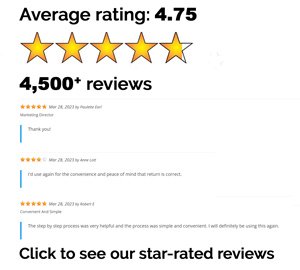Nobody is perfect. Sometimes we drop the ball when it comes to our finances. Maybe you haven’t checked your credit score in years or occasionally pay bills late. We’re not saying that either one is acceptable, but it happens. What’s more important is that you don’t make the same mistakes again. Here’s how to hit the reset button and get your finances in order.
Save as much as you can
Once you reach adulthood, you’re responsible for taking care of yourself. So you need to find ways to make and save money. Emphasis on the word “save”. There’s always going to be some item you want to buy or a place you want to go, but saving has to take precedence over everything. We can’t stress enough how important it is to pay yourself first. You and your bank’s auto-save feature need to become best friends. By automating the process, you’ll start saving money regularly instead of making excuses. Like it or not, that money is going to be transferred on the days you specified (unless you cancel it, of course).
Watch your spending
Take a wild guess what happens when you spend more money than you make? Obviously, you wind up in debt. Therefore, everyone needs to create and stick to a financial plan. Contrary to popular belief, you can still go out and do the things you love while being on a budget. You just need to find a way to make it all work. The 50-20-30 rule strikes a good balance between business and pleasure. The breakdown is as follows:
- 50% of your income will go towards essentials (food, housing, utilities and transportation)
- 20% of your pay goes towards savings (long and short-term goals including debt repayment)
- 30% of your money goes towards fun stuff (salon visits, your cell phone bill, entertainment, etc.)
To make sure you stay within your means, use a notebook or budgeting app to track your expenses.
Pay your bills on time
Nearly two out of five millennial women don’t pay their bills on time. If your memory isn’t the best, setup bill payment reminders so the important things no longer slip your mind. Otherwise, you risk accumulating late fees and penalties.
Eliminate debt
Sixty-one percent of Americans have dealt with credit card debt in the past 12 months. When you’re trying to get out of the red, throwing a few dollars at the bill just isn’t going to cut it. You really need to come up with a plan and give it your all. For starters, don’t even think about using the card anymore. You’re on time out until you get things under control. Stick to using cash only. Next, cut your budget down to the bare necessities so you have more money to pay down your debt. Also consider getting a second job and putting your entire earnings towards the bill. Once you know where the money is coming from, start paying off the card with the highest interest rate first.
Keep your housing costs low
Some people make it seem like you’re a loser if you stay with your parents past a certain age. But you’re not. Don’t take on more than you can handle just because it’s what your friends are doing. If you really need your own place, spend no more than one-third of your income on housing. Depending on where you live, your only options may be getting a studio apartment or a roommate. The latter gives you less privacy but you’ll still have more freedom than if you stayed with your parents.
Learn how credit works
Having good credit allows you to secure a loan at the best interest rate. The lower the rate, the less your loan will cost you over time. Unfortunately, one in three millennials aren’t even sure how credit scores are calculated. So let’s shed some light on the situation. Your credit score is determined by five factors which are:
- 35% – Payment history
- 30% – Amounts owed
- 15% – Length of credit history
- 10% – Credit mix
- 10% – New credit
Creditors use this information to assess your level of risk. They want to make sure that every penny you borrow will be paid back. Think about it, we all know someone we’d never lend money to. Despite their promises to pay you back, you know once the money leaves your hands, it’s gone forever. That’s exactly what creditors are trying to avoid. Always pay your bills on-time and in full to ensure your credit score doesn’t suffer. You also need to check your credit report annually to catch mistakes before they cause too much damage.
Get your full 401(k) match
If you work for a company that offers to match your 401(k) contributions, you better take advantage while you can. It’s free money. Contribute however much it takes to receive the full company match. There are a couple different matching options you’ll come across. Some employers match a percentage of your contributions up a certain limit. For example, they’ll match 50% of your contributions up to 6% of your salary. Meanwhile others match dollar for dollar until you hit a specified limit. Either way, make sure to contribute enough to your 401(k) so you don’t leave money on the table. Again, it’s free money.
Stop comparing yourself to others
A lot of what you see on social media is a facade. That girl with the flawless, glowing skin? It’s probably nothing more than Facetune. That cool guy who’s been to 6 countries in the last three months? He might be a scammer. The truth is you don’t know their real situation and there’s a good chance you never will. Don’t drive yourself crazy or into debt trying to gain the approval of others. A few “likes” and “follows” isn’t worth sacrificing your financial future.
Familiarize yourself with these financial rules of thumb
- 20/4/10 rule – Put 20 percent down on a car and finance the rest for no more than four years. Make sure the associated costs (monthly payment, gas and maintenance) are less than 10 percent of your income.
- 10-year rule – Keep your car for at least 10 years so you get all the value out of it.
- Retirement – Save at least 15% of your pretax income including your company match.
- Student loans – Don’t borrow more than you expect to earn your first year after graduation.
- Stocks vs. bonds – Your age is the percentage of your portfolio that needs to be invested in bonds. The rest goes into stocks.
- Emergency fund – Save at least six months’ worth of living expenses.
- Mortgage – Spend no more than 2.5 years’ worth of your gross income on a house.
- Life insurance – Policy needs to be at least 10 times your annual salary.




